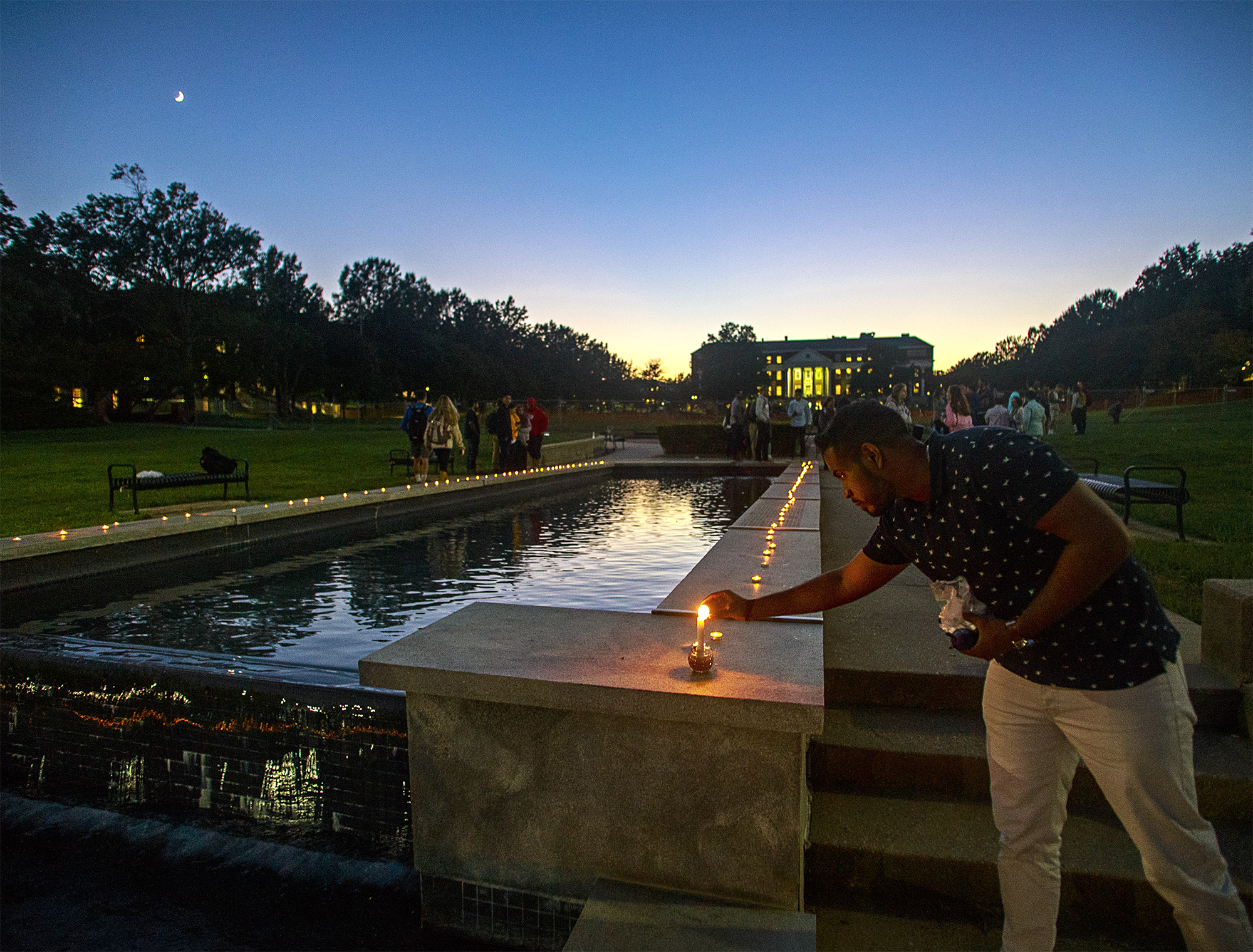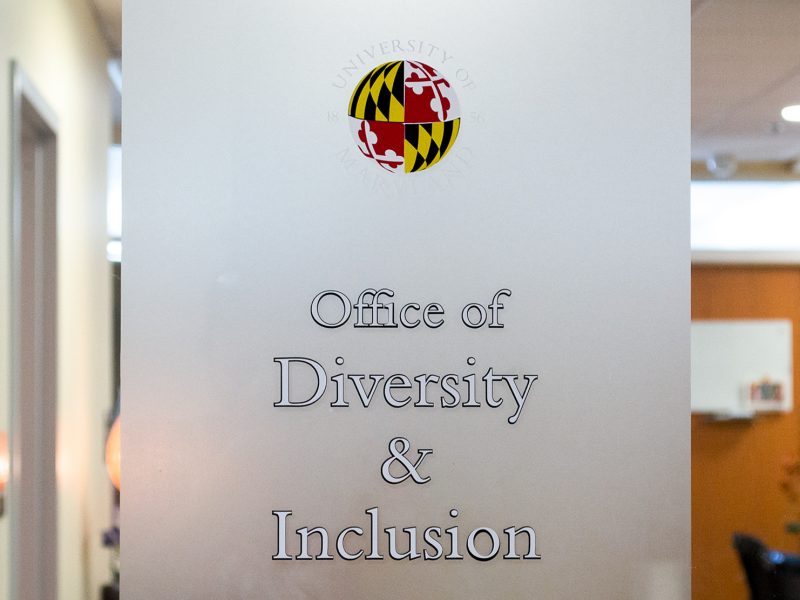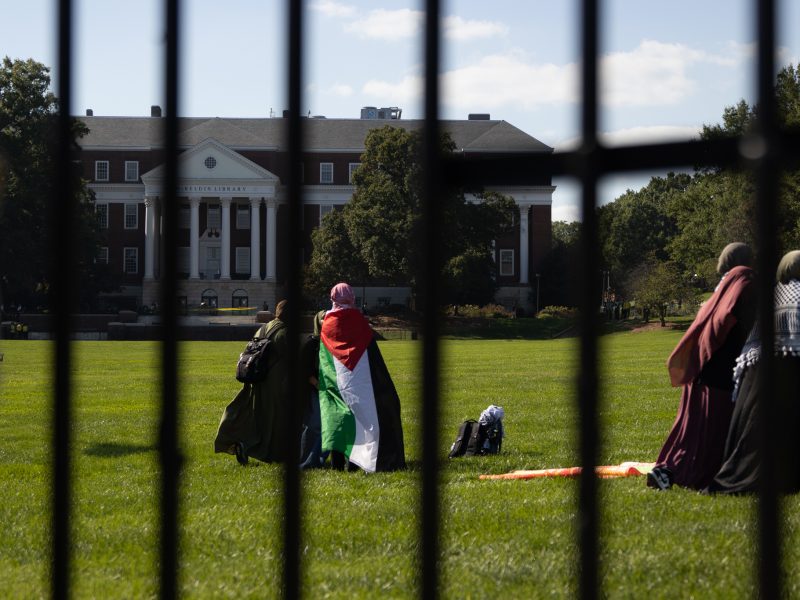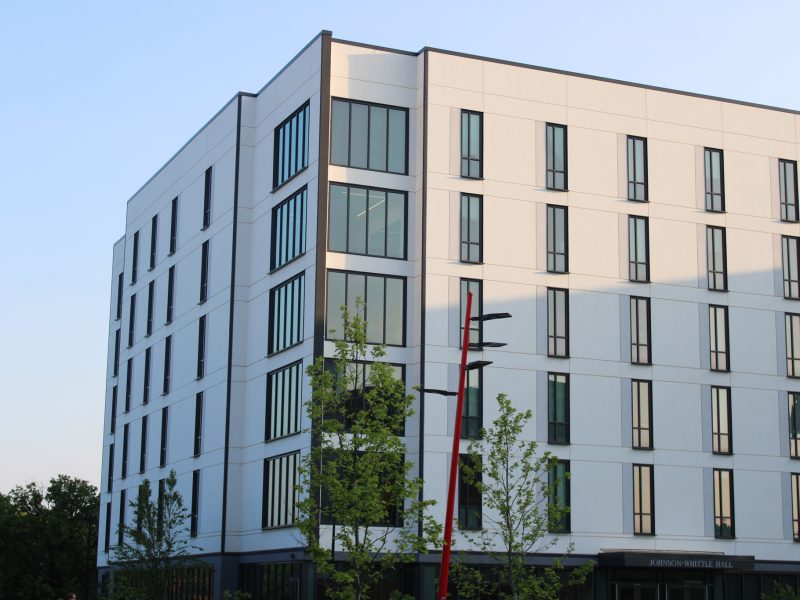Whenever Farhad Siddique came home from class and walked into his apartment, he lit up the place, his roommates said.
He kept his friends laughing through late-night food runs and basketball games at Eppley Recreation Center, and was always dependable, said senior bioengineering major Arman Khan, who lived with Siddique this semester. So when Siddique stopped answering his friends’ calls last week, Khan said he knew “something was going on.”
Siddique, a junior at the University of Maryland, was killed Sept. 28 — the day before his 20th birthday. Police believe his father, Nasir Siddique, killed his wife, 48-year-old Zarqa Siddique of Bel Air, before coming to College Park and shooting Siddique outside Parkside apartments before turning the gun on himself. Prince George’s County Police and the Harford County Sheriff’s Office categorized the incident as a domestic murder-suicide.
Khan joined about 100 other people to remember Siddique at a candlelight vigil on McKeldin Mall on Wednesday night. Students and faculty at the vigil, which was hosted by this university’s Pakistani Student Association, recalled Siddique’s strong work ethic, gentle spirit and signature style during the event.
“He cared for us more than he cared for himself,” said junior cell biology major Ahmed Hamayun, another one of Siddique’s roommates. “To lose someone like that is really hard.”
The vigil began with a student reciting part of a chapter of the Quran, and another saying a prayer.
“Allah, forgive our living and forgive our deceased,” one student said. “Please Allah, keep us strong and help us move on.”
Siddique was a physiology and neurobiology major and a member of the Muslim Students Association. He was also in his second year as a member of the Student Health Advisory Committee and loved playing sports.
A member of the advisory committee read a passage written by Siddique about what he hoped to accomplish that year.
“I am excited to continue to educate the campus community about the services the health center offers and build upon what we accomplished last year,” he wrote. “This year I hope to participate in many events in order to inform the student population on how they can use the [University Health Center] in order to improve their overall health and wellness.”
Julia Matute, the group’s faculty advisor, said it was clear Siddique “had a mission this year.”
Some remembered how Siddique would use his style to express himself. It seemed like he had every color pair of Yeezys, one recalled. Others talked about his dedication to schoolwork, and how he’d force his friends to go with him to the library.
Siddique always took time to listen to others, his friends said. And after what happened, many people who spoke at the vigil encouraged others to do the same.
“Check on your family members,” Khan said. “Don’t take them for granted. Ask people what’s going on in the background, because everyone is battling their own demons.”
Arshad Mughal, who works in this university’s department of design and construction, had known the Siddique family for more than 20 years. He said Farhad’s parents spoiled their son — especially his father, who “would do anything for Farhad. He couldn’t say no to Farhad for anything.”
“He was their prince, but he kept grounded,” Mughal said. “He was a bright student and he had a great future. He wanted to go to medical school like his older sister.”
Mughal said they seemed like the perfect family, and he had no inkling anything was wrong. When he heard all three were dead, he assumed it had to have been a car accident. It was heart wrenching, he said, to go to the funeral for all three family members on Saturday.
Speakers reminded people at the vigil to use their time wisely, as Siddique had.
“His style. His intelligence. His personality. He’s an unforgettable guy,” said freshman Eesa Naseer, who is enrolled in letters and sciences. “We shouldn’t stop knowing Farhad. We shouldn’t let his legacy die out.”



